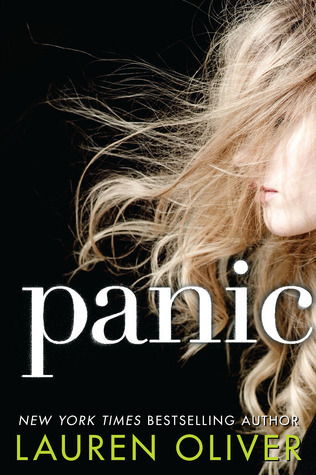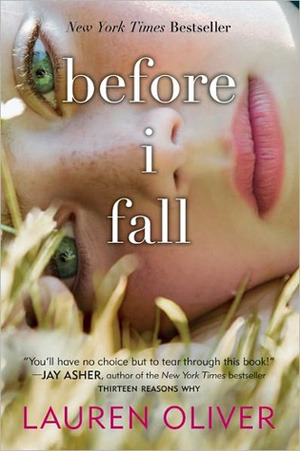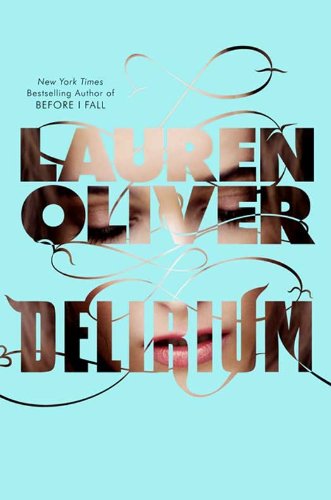
Ana's Rating
Readers Rating
Panic began as so many things do in Carp, a dead-end town of 12,000 people in the middle of nowhere: because it was summer, and there was nothing else to do.
Heather never thought she would compete in Panic, a legendary game played by graduating seniors, where the stakes are high and the payoff is even higher. She’d never thought of herself as fearless, the kind of person who would fight to stand out. But when she finds something, and someone, to fight for, she will discover that she is braver than she ever thought.
Dodge has never been afraid of Panic. His secret will fuel him, and get him all the way through the game, he’s sure of it. But what he doesn’t know is that he’s not the only one with a secret. Everyone has something to play for.
For Heather and Dodge, the game will bring new alliances, unexpected revelations, and the possibility of first love for each of them—and the knowledge that sometimes the very things we fear are those we need the most.
The game, they say, is life. But what’s a game without a prize? Listless teenagers in small-town Carp have solved that problem. The stakes have been laid out, one by one, the contestants are familiar faces, and the challenges deadly. The blue ribbon? 67, 000$. No one said it would be easy, but they promised it would be worth it. If you come out in one piece, that is.
So many reviewers have argued that the game of Panic is not plausible enough to have burgeoned into being and to have existed, in all of its perilous gravity, for so long. I tend to disagree on sheer principle. Because is it likely that a bunch of teenagers’ boredom yielded such life-threatening backwash? No. But is it conceivable? Unquestionably. The proof is in la bête humaine‘s rather primeval pudding. Especially given the fact that this a work of what is commonly known as fiction. Besides, I don’t think anyone argued with William Golding about the likelihood of the developments in Lord of the Flies, and look at how well that turned out!
These characters are definitely a new angle for Oliver, and I have to say that she managed well. Our protagonists aren’t necessarily very likeable people, but then again Dodge is, arguably, within the bounds of the ‘raging psychopath’ ballpark. It turns out that HarperCollins wasn’t kidding when they pronounced Panic to be somewhat of a psychological thriller. And I may not have experienced any especially fuzzy feelings towards Heather or Dodge– honestly, Heather is really rather whiny when she wants to be– and I may not have been able to connect with them in full, and they may not have been as fleshed out as they could have been, but I enjoyed them nonetheless. The characters’ motives for participating in Panic, whether mind-numbingly witless or deliciously spiteful, were a delight to encounter.
The writing is good. Honestly, Lauren Oliver’s writing is always good. Pigs will fly and blue moons will wane before Lauren Oliver’s writing is anything but good. If you are broke and living on nothing but stale granola bars and crappy instant coffee, and no, Mom, you don’t need meditative yoga or a new life goal or a caffeine detox, all you need is a constant in your life, the only thing I can suggest to you at this time is the unfailing goodness of Lauren Oliver’s writing. Was I disappointed that she deigned to use words such as “pimply” and “butt”? Yes. I cannot lie. However my faith remains unwavering. We love you, Lauren Oliver. Never change.
Panic‘s tragic flaw, really, is its lack of tragedy. Its epilogue is just so… predictable. Agreeable. Bland. Is it awful to say that I’m loathing this happy ending? But after this book’s disillusionments and unveilings, plot twists and turns, and flurries of action and hoopla– well. It’s a bit of an anticlimax, isn’t it? I couldn’t help but be dismayed at the measly lasting impression that Panic proffered.
Another little hitch in this novel’s otherwise flawless figure is the inordinate disparity of its pacing. Fundamentally, Panic‘s plot revolves around the game’s challenges. Everything in between is lamentably slow-paced. This put me quite on edge, actually, because I went from bouts of heart-stopping, breath-catching, seat-edging, page-turning, absolute suspense, to really rather drab bits of lethargy. The book’s cover model, as it turns out, is not the only one suffering from whiplash.
Admittedly, Panic will not go down in history as my favourite Lauren Oliver novel. It had its moments, for sure, but failed to live up to its full potential. That being said, I personally can’t wait to see what Oliver tackles next– she’s done dystopia, she’s done tear-jerker, and she’s done outrageous-adolescent-escapades. Who knows what the future holds? Recommended for adrenaline junkies, vicarious adrenaline junkies, and invincible teenage die hards. 3.8/5 stars.
I’ll keep you posted,

Ana's Rating
Readers Rating
What if you only had one day to live? What would you do? Who would you kiss? And how far would you go to save your own life?
Samantha Kingston has it all: looks, popularity, the perfect boyfriend. Friday, February 12, should be just another day in her charmed life. Instead, it turns out to be her last.
The catch: Samantha still wakes up the next morning. Living the last day of her life seven times during one miraculous week, she will untangle the mystery surrounding her death—and discover the true value of everything she is in danger of losing.
People change, slowly but surely. Sam did. All it took was one helluva eye-opening experience– or eye-closing, depending on how you want to look at it. Still, the truth of the matter abides that Sam did remedy her faults, learn from her mistakes, kiss the right boy, and tie up her assorted variety of loose ends. Did this final relived day make a lasting difference? Was it even the alternative reality that actually occurred? We’ll never know. It doesn’t matter. It’s good to have a slight bit of faith restored in humanity, regardless.
Before I Fall isn’t read for the destination– which was made glaringly plain on page one– but for the journey. Lyrical and resounding, Ms. Oliver wrote to overwhelm with simplicity. On her voyage from high school mean girl to unlikely philanthropist, Samantha Kingston succeeds to impact us not out of wisdom, but wonder. To exalt the quotidian became natural, and her everyday musings reverberated within us, purple prose without the meticulous and flowery planning. If Lauren Oliver were to write her own Deep Thoughts, I would assuredly be the first to buy it.
Unlike so many other reviewers, this book didn’t “take me back to high school.” No, unfortunately I’m still living that nightmare. Appropriately, Sam and & co. do bear a startling resemblance to some girls I know. Nonetheless, I never hated Sam or the other mean girls; I sympathized with them from the beginning. I love them all, even Lindsay, probably for their faults and vulnerabilities more than anything else. They were nasty, yes, but also insecure, superficial, selfish, spiteful– human.
Even in the novel’s final chapters, Sam was no angel. Preoccupied with silly romances and trivial revenge, she probably wouldn’t have been named a saint had she relived February 12th three hundred and sixty-five times. However, I relished in Sam’s frivolities; they drove the novel’s message home. I don’t mind dramatizing every day’s occurrence if that’s what it means to live, and I applaud the depth Oliver lent to characterization in this regard.
I should like to smell a thousand roses for the sake of Samantha Kingston.
Before I Fall, beautiful and silent, will forever go down in history as the first contemporary novel unrelated to cancer to make me cry. And yes, it is significantly better than If I Stay, the only novel to which I’ve ever heard it be compared.
5/5 stars.
Also: I’m meeting Lauren Oliver when she comes to Ottawa later this month. I can’t wait!
I’ll keep you posted,

Ana's Rating
Readers Rating
They say that the cure for love will make me happy and safe forever.
And I’ve always believed them.
Until now.
Now everything has changed.
Now, I’d rather be infected with love for the tiniest sliver of a second than live a hundred years smothered by a lie.
Amor Deliria Nervosa. Plato was the first to introduce the idea of love as a disease. Lauren Oliver takes this idea and transforms it into a strict, infuriating, frustrating, wonderfully dystopian world.
I love the concept of falling in love in a world where love is illegal. I love Lena (the main character)’s mother, who supposedly committed suicide because she’d rather die loving her daughters than live loving no one. I love that, because of her family history, Lena is, at first, ridiculously excited to get Amor Deliria Nervosa’s cure. I love the Portland town that Lena lives in. I love how the futuristic U.S. is organized; the goverment decides who marries whom, where and if people go to college, where people work. I love the little quotes (from books in Oliver’s world) that introduce each chapter, and the effect they have on me.
I’ll give you an example of one that I found especially shiver-inducing:
Mary keep your oars a-steady
Sail away on the rising flood
Keep your candle at the ready
Red tides can’t be told from blood.
~ “Miss Mary” (a common child’s clapping game, dating from the time of the blitz), from Pattycake and Beyond: A History of Play
~ Chapter eighteen
In spite of this, I didn’t enjoy Delirium as much as I could have. I blame my prejudice towards this dystopian world (love being a disease). I mentioned that Lena’s mother apparently committed suicide to avoid being cured from love. Lena strongly disagreed with her mother for the majority of the book, which put me and her at odds. I, of course, see life without love as life not worth living, so for most of the book I fought with Lena. I tried to understand her point of view, but I couldn’t. At all.
Furthermore, how Amor Deliria Nervosa’s cure works is not explained. What part of the brain does the cure’s operation’s 3-pronged needle fiddle with? How does messing with one emotion not affect other emotions? Do the cureds even feel emotions at all? If not, what makes them human? And, most importantly, how could you just switch off an emotion as heartfelt as love? Oliver’s world would be more realistic if the scientific portion of it were explained.
And then there’s Delirium‘s ending. Oh, the ending. Prepare to be complete and utterly dissatisfied. And save up for the sequel.
In the end, Delirium merits a whopping 3.5/5 stars. A great dystopian, if you’re not a scientist.
I’ll keep you posted,



![[Twitter]](http://www.whatyareading.com/wp-content/plugins/bookmarkify/twitter.png)
